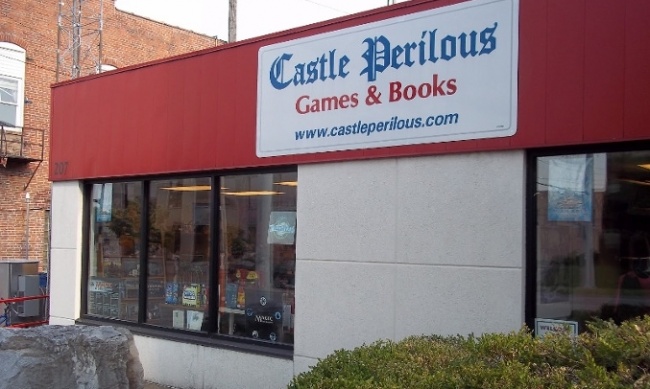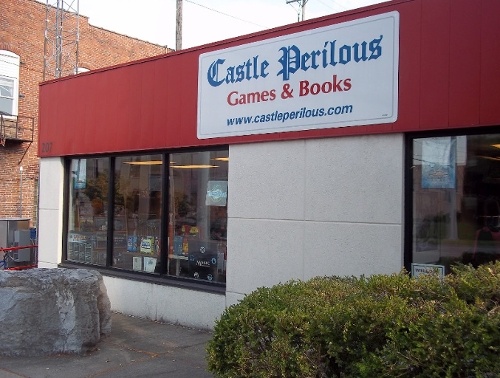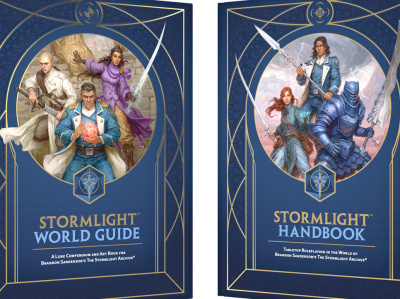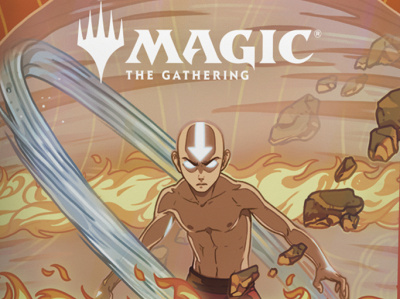Rolling for Initiative is a weekly column by Scott Thorne, PhD, owner of Castle Perilous Games & Books in Carbondale, Illinois and instructor in marketing at Southeast Missouri State University. This week, Thorne looks at why mass media game stories seem surprised that tabletop games still exist.
I was listening to NPR’s Here and Now program last Friday afternoon and caught this story on the resurgence of analog games, as the reporter refers to them. Every so often, a reporter in the media in need of a human interest story will catch onto the fact that millions of people still play board games regularly and will write a story announcing that there are games beyond Monopoly and Clue and that people actually still "gasp" play boardgames as if it was something that millions of people don’t already know. As the Here and Now program points out, boardgames are the largest funded category on Kickstarter, dwarfing their digital brethren in terms of amounts pledged. According to ICv2, hobby game sales have increased year to year for the past 8 years, sold over $1.19 billion (eclipsing the number of comics sold) in 2015 and over $1.4 billion in 2016, with a 50% year-over-year increase in Dungeons & Dragons sales at Wizards of the Coast/Hasbro in its most recent quarter (see "Games Drive Hasbro Sales Jump"). Board games are big and yet it still seems as if daily, game store owners report customers walking into their store, looking at all the stock and asking "So where are your games?" Why? Here are a couple of reasons:
Size of digital gaming market. Remember that I just mentioned that hobby game sales topped $1.4 billion in 2016. That’s a pretty impressive figure, except when you compare it to the digital gaming market which is projected to top $100 billion in sales this year, according to Newzoo. Compare $1.4 billion to $100+ billion and you can see that hobby game sales are a drop in the bucket compared to the sales of their digital brethren. When you have numbers like that, it is no wonder the average customer thinks of digital games first when they go into a "game store."
Confirmatory bias. This is the human tendency to judge everything in terms of its relationship to ourselves and to seek and be more comfortable with information that confirms our beliefs. Since I run a game store, I deal with what the reporter in the Here and Now story referred to as "analog games" on a regular basis. Most of my regular customers play analog or table top games and we primarily sell tabletop games. Due to our extensive familiarity with them, we naturally think of tabletop games when we think of games, forgetting that the average consumer has more likely played a digital game last and are far more familiar with those games than they are the ones that we sell.
The Walmart Effect. Customers are far more likely to have shopped in a Walmart, Target or Walgreen’s than they are to have shopped in one of our tabletop game stores and are therefore much more likely to have seen the games for sale there and to view Monopoly, Sorry and Clue as the standard of a board game. Confirmatory bias works both ways. When a customer spends all of their shopping time in a mass market store, they are going to get exposed to mass market games and not have any reason to consider the huge variety of other games out there, either at your FLGS or available through Kickstarter.
Maybe, instead of shaking my head at the next of these stories about discovering that people play boardgames, I need to figure out better ways of getting the word out to the huge numbers of people that do not play "our" board games.
The opinions expressed in this column are solely those of the writer, and do not necessarily reflect the views of the editorial staff of ICv2.com.

Column by Scott Thorne
Posted by Scott Thorne on July 31, 2017 @ 2:57 am CT
MORE GAMES
For 'Cosmere Roleplaying Game'
August 13, 2025
Brotherwise Games will be launching the Cosmere Roleplaying Game: Stormlight series.
New Set Features Lots of Allies and Humans
August 13, 2025
Wizards of the Coast revealed details on Magic: The Gathering - Avatar: The Last Airbender .
MORE COLUMNS
Column by Scott Thorne
August 11, 2025
This week, columnist Scott Thorne notes a new twist in the Diamond Comic Distributors saga and shares his thoughts on the Gen Con releases that will make the biggest impacts.
Column by Jeffrey Dohm-Sanchez
August 7, 2025
ICv2 Managing Editor Jeffrey Dohm-Sanchez lays out the hotness of Gen Con 2025.








